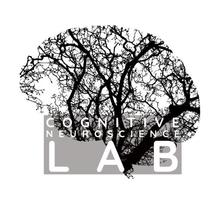Il sito del COSPECS non è più aggiornato dal 2023. Vai sul nuovo sito

Cognitive Neuroscience Lab
Sommario: Il laboratorio di Neuroscienze Cognitive, fondato nel 2020 dal prof. Carmelo M Vicario presso il Dipartimento di Scienze Cognitive, Psicologiche Pedagogiche e degli Studi Culturali dell’Università di Messina, ha la vocazione di ampliare la conoscenza nello studio delle basi neurali dei processi cognitivi e affettivi attraverso un approccio multidisciplinare e interdisciplinare che include l’uso di metodiche per la stimolazione cerebrale non invasiva, tecniche per il rilevamento di dati elettrofisiologici e coinvolgimento di popolazioni cliniche.
Il principale focus di ricerca del laboratorio di Neuroscienze Cognitive riguarda lo studio del sistema ricompensa (Reward System) e il suo impatto sui processi cognitivi e affettivi.
Per maggior informazioni sulle attivita’ del laboratorio si rimanda alla webpage personale del Direttore del laboratorio, il Professore Carmelo Vicario: https://carmelovicario.webnode.it/
Interessi di ricerca: Cognizione temporale; Meccanismi cognitivi e basi neurali della rappresentazione grandezze (tempo, spazio e numeri); Sistema motorio; Sistema di ricompensa e processi motivazionali; Embodied cognition; Decision Making; Emozioni; Disturbi d’ansia; Neuroplasticita’.
Summary: The Cognitive Neuroscience laboratory, founded in 2020 by prof. Carmelo M Vicario at the Department of Cognitive, Pedagogical Psychological and Cultural Studies of the University of Messina, has the vocation to expand knowledge in the study of the neural bases of cognitive and affective processes through a multidisciplinary and interdisciplinary approach that includes the use/involvement of non-invasive brain stimulation, electrophysiological techniques and clinical populations.
The main research focus of the Cognitive Neuroscience laboratory concerns the study of the reward system and its impact on cognitive and affective processes.
For more information on laboratory activities, please refer to the personal webpage of the laboratory director, Professor Carmelo Vicario: https://carmelovicario.webnode.it/
Research interests: Temporal cognition; Cognitive mechanisms and neural bases of the representation of quantities (time, space and numbers); Motor system; Reward system and motivational processes; Embodied cognition; Decision Making; Emotions; Anxiety disorders; Neuroplasticity.
Selected publications:
Vicario CM, Gulisano M, Maugeri N, Albin RL, Rizzo R. Moral Decision-Making in Adolescents with Tourette Syndrome. Mov Disord. 2021 Jun 21. doi: 10.1002/mds.28705. Online ahead of print.
Marković V, Vicario CM, Yavari F, Salehinejad MA, Nitsche MA. A Systematic Review on the Effect of Transcranial Direct Current and Magnetic Stimulation on Fear Memory and Extinction. Front Hum Neurosci. 2021 Mar 22;15:655947.
Vicario CM, Salehinejad MA, Felmingham K, Martino G, Nitsche MA. A systematic review on the therapeutic effectiveness of non-invasive brain stimulation for the treatment of anxiety disorders. Neurosci Biobehav Rev. 2019 Jan; 96:219-231.
Vicario CM, Kuran KA, Rogers R, Rafal RD. The effect of hunger and satiety in the judgment of ethical violations. Brain Cogn. 2018 Aug; 125:32-36.
Vicario CM, Rafal RD, Martino D, Avenanti A. Core, social and moral disgust are bounded: A review on behavioral and neural bases of repugnance in clinical disorders. Neurosci Biobehav Rev. 2017 Sep; 80:185-200.
Vicario CM, Nitsche MA, Hoysted I, Yavari F, Avenanti A, Salehinejad MA, Felmingham KL. Anodal transcranial direct current stimulation over the ventromedial prefrontal cortex enhances fear extinction in healthy humans: A single blind sham-controlled study. Brain Stimul. 2020 Mar-Apr;13(2):489-491
Vicario CM, Gulisano M, Maugeri N, Rizzo R. Delay Reward Discounting in Adolescents With Tourette's Syndrome. Mov Disord. 2020 Jul;35(7):1279-1280.
Vicario CM, Salehinejad MA, Mosayebi-Samani M, Maezawa H, Avenanti A, Nitsche MA. Transcranial direct current stimulation over the tongue motor cortex reduces appetite in healthy humans. Brain Stimul. 2020 Jul-Aug;13(4):1121-1123
Vicario CM, Rafal RD, di Pellegrino G, Lucifora C, Salehinejad MA, Nitsche MA, Avenanti A. Indignation for moral violations suppresses the tongue motor cortex: preliminary TMS evidence. Soc Cogn Affect Neurosci. 2020 Apr 28:nsaa036






